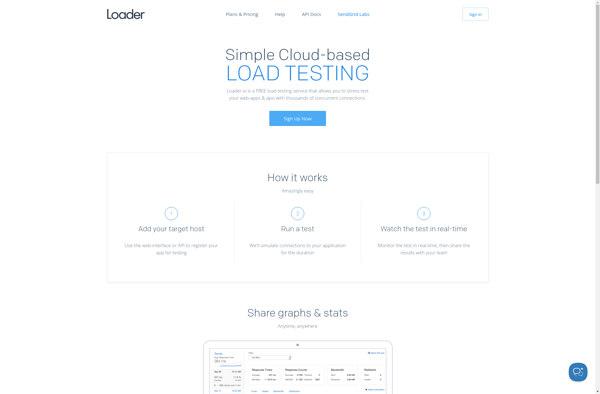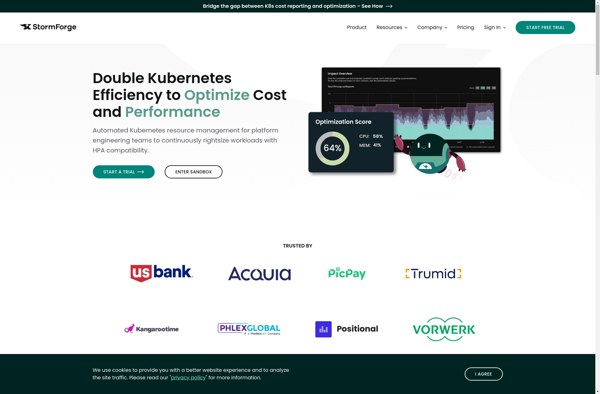Description: Loader.io is a cloud-based load testing service that allows developers to stress test their web applications and APIs. It can simulate thousands of concurrent users to identify performance issues under load.
Type: Open Source Test Automation Framework
Founded: 2011
Primary Use: Mobile app testing automation
Supported Platforms: iOS, Android, Windows
Description: StormForger is a cloud-based load and performance testing platform for web and mobile apps. It allows users to carry out stress tests, load tests, and geo-distributed tests to ensure apps can handle real-world traffic and remain performant and available under load.
Type: Cloud-based Test Automation Platform
Founded: 2015
Primary Use: Web, mobile, and API testing
Supported Platforms: Web, iOS, Android, API

